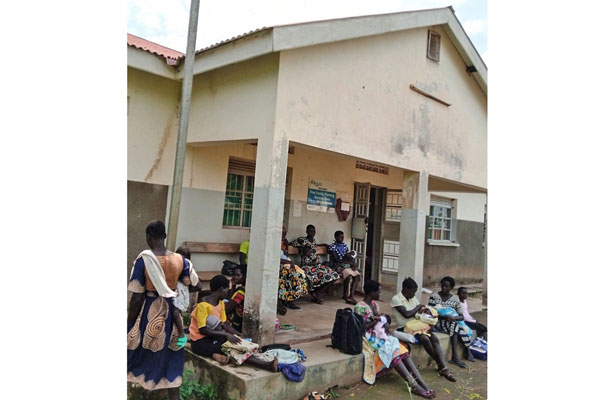Prime
Patients stranded as health workers abscond from duty

Mothers wait to be attended to at Okole Health Centre II in Kole District on June 16. The approval of Lira City has affected service delivery in Kole because many civil servants prefer to commute from Lira. PHOTO/BILL OKETCH
What you need to know:
- A health centre III, by standards should have a fully-pledged maternity, female, children and male wards and should have staff houses.
- This is because health workers cannot offer 24-hour services when they have no accommodation.
- Some health workers, who are employed in Kole District, reside in Lira City.
- Kole has 171 health workers providing services at 10 public health facilities. These personnel and public health infrastructure serve a population of more than 240,000 people in the area.
- But all the facilities have issues as they cannot meet the minimum standard stipulated in the health sector service delivery standards.
Public health service delivery in Kole District is being affected because some civil servants are residing and commuting to work from the newly approved Lira City .
The health workers, who stay in Lira City, about 25kms away from their workplaces, claim Kole is remote and lacks accommodation for them, especially at health facilities.
It is estimated that nearly 70 per cent of public servants from across the Lango sub-region currently reside in Lira City.
The city became operational in late July. This has seen service delivery in critical sectors such as health severely hampered, amid increasing reported cases of health workers’ absenteeism.
However, as they commute from Lira, health personnel attached to Bala Health Centre III, often abscond from duty.
As a result, patients remain without anyone to attend to, them according to a community scorecard report commissioned by the Apac Anti-Corruption Coalition (TAACC), an NGO, in July to September.
Apart from the issue of absconding from duty, other health workers report late for work at Bala Health Centre while others are rude to patients, said Ms Loy Tino, the TAACC’s programme officer for Kole District.
This newspaper established that Bala Health Centre serves a population of more than 50,000 people from Bala Sub-county and the neighbouring sub-counties of Lira and Akalo.
Mr Ben Marley Agum, the Kole deputy chief Administrative officer, said it is dangerous when civil servants embrace such a precedent.
He explained that there are only three ways in which civil servants can forfeit all the benefits of their career, including pension and gratuity.
These include absconding from duty, dismissal from job and if a staff is retired in public interest.
Dr Jimmy Eyiiga, the Kole district health officer, said for quality services to be available in Kole, there must be a human resource personnel with the right attitude and commitment to work.
“When we talk about infrastructure, we are looking beyond buildings. It also includes transport because health workers need to move for outreach programmes, administrative purposes and referrals. Something that impacts on the quality of service delivery,” he said.
Nonetheless, a team from the Ministry of Health’s top management was recently in Kole District on a fact finding mission.
“We missed the minister and the permanent secretary but the rest of the team were here and I gave them a report about our challenges,” the Dr Eyiiga said.
He said the team indicated that Omoladyang Health Centre II should be supported by the government but advised the district leadership to take the right steps for it to be upgraded.
Mr Joel Okullo, the health information assistant at Bala Health Centre III, said they plan to hire a midwife due to the overwhelming workload in their maternity unit.
In 2019, the Ministry of Health under the Uganda Reproductive Maternal and Child Health Services Improvement Project, signed Results Base Financing grant agreements with 51 districts under the Ministry of Local Government aimed at improving reproductive, maternal and child health.




